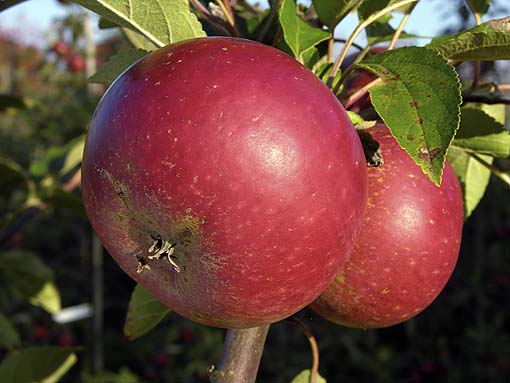The Ingrid Marie variety of apple was ‘discovered’ on Funen in 1910.
A local schoolteacher named the variety after his deceased daughter. The tangy fruit has been synonymous with the taste of Denmark ever since.
However, new research from the University of Copenhagen has revealed that the Ingrid Marie and many other well-known Danish apple varieties may not be quite so ‘Dansk’ after all.
A group of apple genealogists at the Department of Plant and Environmental Sciences at the University of Copenhagen used DNA analysis to map the genetic diversity and origin of over 500 apple varieties – 300 of which were Danish.
Travellers
The results revealed that many Danish apple varieties are actually the children of varieties from many other European countries.
The Ingrid Marie proved to be the offspring of two English apple varieties, Cox’s Orange and Cox’s Ponoma, which were popular in the late 1800s and spread to Danish gardens.
The popular Danish Gråsten apple can be traced back to the 1700s. Scientists had believed that it may be one of the ancestors of other Danish varieties.
“But, after a thorough examination, we have not been able to find a single offspring of the Gråsten apple among other Danish varieties,” said PhD student Bjarne Larsen, who conducted the research.
Infertile oldster
It turns out that the Gråsten apple is a triploid, which carries three sets of chromosomes, and it is therefore unable to have offspring, in contrast to most other varieties, which carry only two sets of chromosomes and are therefore fertile.
The analysis also revealed that several other famous Danish varieties are merely clones with different names.
They are therefore quite similar in both genetics, appearance and taste.
By any other name
When you cruise the produce aisle, the Høje Taastrup apple will be exactly the same as the Rød Ananas, while the Hillested is identical to the Hillerslev.
The confusion is, according to the researchers, the result of clerical errors and oversights.
‘If, for example, there was an old apple tree in a garden and no-one could remember where it came from, they just gave it a new name,” said Larsen.
Researchers hope to use the results to study the genes responsible for the best tasting apples so that new, tastier varieties can be bred.












